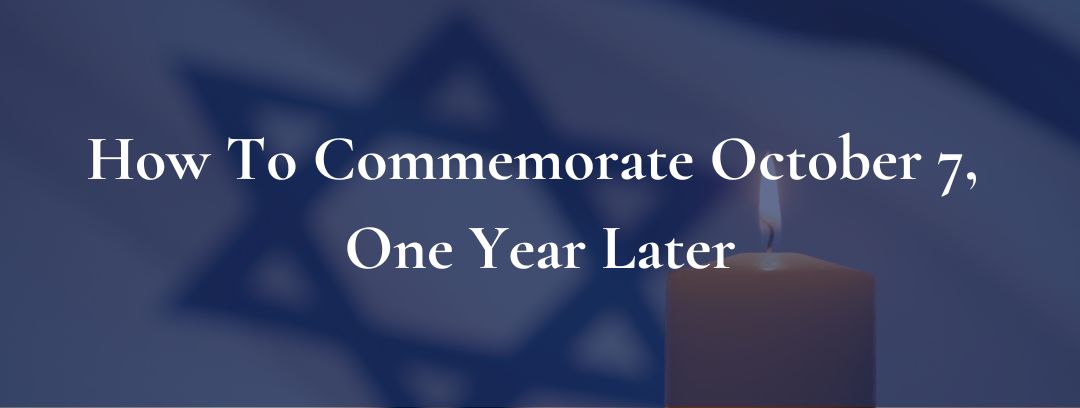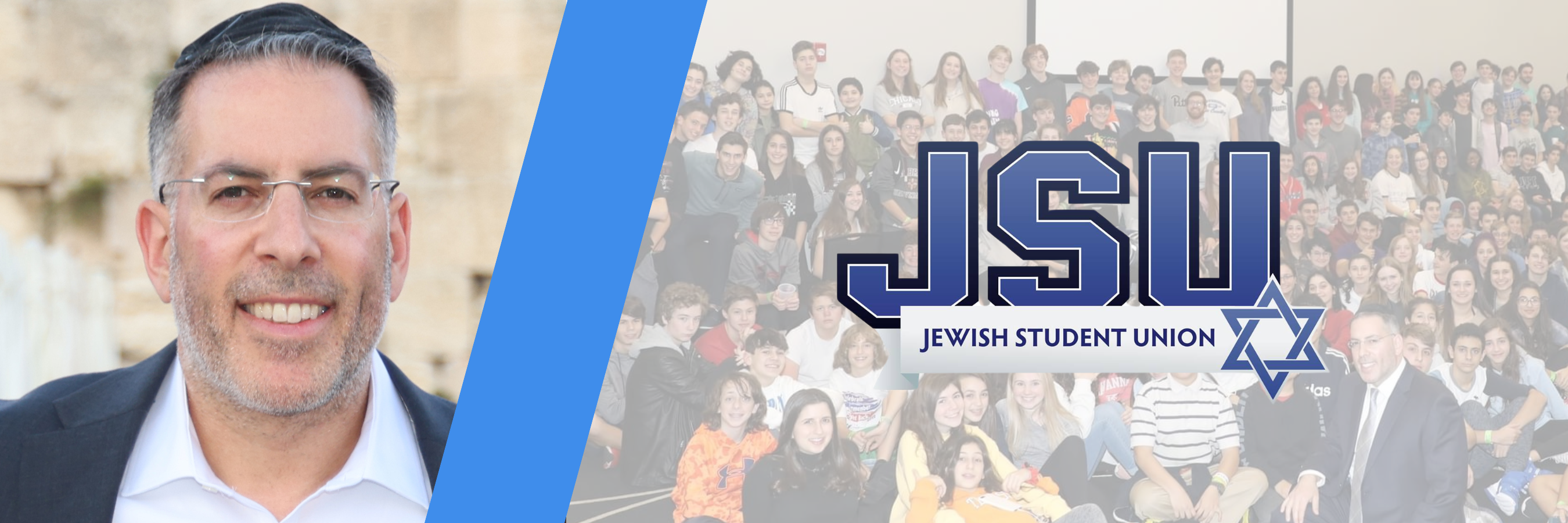If the Jewish future is important to you, please click here and share this email with your family. Welcome to the September edition of the Jewish Future Promise Newsletter. |
|

Promisers to date: The Jewish Future Promise reached 74,615 Signers, and the Jewish Youth Promise now has 24,355 Youth Signers. 
If you read one article this week…
Nearly one year after October 7, the Jewish people are still fighting. Fighting not only for the release of our hostages, but for the future of Israel and the Jewish people. The pressure is on us to make sure the world remembers October 7 not just for the pain, but for the resolve of a people who refuse to give up, forget, or be broken. Please take a minute to read my op-ed that published in the Times of Israel: October 7: A Wake-Up Call for Israel’s Survival and the Fight to Free Our Hostages. Take it as a call to action, and share it with anyone you know who may take the survival of the Jewish people for granted. Because we can’t, and we won’t. Sincerely, Hadara Ishak President & COO, Jewish Future Promise
New & Newsworthy Oct. 7: A wake-up call for American Jews to stand unwavering with Israel – Jewish News Syndicate Media, Stop Skating the Truth about Atrocities – Times of Israel
How-To: Commemorating October 7, One Year Later 
October 7 changed the Jewish world forever. As we approach one full year since the horrific attacks, here are a few ways you can join our JFP partners in commemoration: 1. Attend a Commemoration in your community It is more critical than ever for the Jewish community to unite in support of itself and Israel. Our partners at the Jewish Federations of North America have assembled a comprehensive list of commemoration services across the United States and Canada. Many local federations and Jewish organizations are also offering virtual events on October 6 and 7, including an online gathering from our partners at BBYO and a virtual tour of the October 7 exhibition at the Museum of the Jewish People. 2. Honor the memory of those we lost - Light a yahrzeit candle and let the memories of our fallen civilians and soldiers burn bright for time eternal.
- Recite a prayer in their memory (October 7 Prayer Sheet)
- Explore Olami’s Legacies Initiative and the Times of Israel’s Stories collection and get to know the fallen for who they were, and not just how they left us.
3. Let your voice be heard - Hang an Israeli flag, wear a Magen David, and publicly remind the world that the Jewish pride is stronger than ever.
- Attend a pro-Israel rally, march, or speaking event
- Call out antisemitic harassment or discrimination unapologetically, and demand that our community leaders and politicians take action to condemn and prevent it.
- Our partners at BBYO have created a guide for having meaningful conversations about Israel and post-October 7.
- Remember: Your voice matters.
47% of Jewish teens have experienced antisemitism personally, with 78% reporting that these incidents occurred within school settings according to a recently published study by Mosaic Teens. Equally concerning, 27% of respondents faced antisemitism from teachers and 28% from school administrators. 78% of respondents felt that their concerns were dismissed or minimized, particularly in the United States. With Jewish teens feeling increasingly at risk, we have a critical need for action to address these issues and ensure a safe learning environment for Jewish students and their peers.
Promiser Spotlight: Rabbi Chaim Neiditch

Rabbi Chaim Neiditch is the Founder and Executive Director of the Jewish Student Union of Atlanta. Tell us about your role as the Executive Director and Founder of the Jewish Student Union (JSU) of Atlanta. In 2007, a Jewish Federation study found that 90% of Jewish teens in Atlanta were unaffiliated and had no connection to Judaism. Our idea was to revolutionize the conventional service provision model: what if we met them where they were? Instead of trying to convince them to come to us, we went into public and private high schools and established Jewish clubs, giving teens a place to meet where they normally wouldn’t find Jewish programming. We now reach over 4,000 kids a year at 22 schools across six counties in Georgia. JSU helps them build a network, including when they go off to college, no matter whether they’re affiliated, unaffiliated, interfaith, or even non-Jewish allies who want to get involved. What has been most concerning to you about the rise of on-campus antisemitism since October 7? It’s such a difficult time for Jewish teens because antisemitism has become a socially acceptable phenomenon. If you substituted any other minority group into our situation, you would never see people speak to other people that way and get away with it. You would never see a Russian teen punished for the actions of Vladimir Putin, so it is outrageous that Jewish teens, living in a totally different country, are being attacked ostensibly because of false claims about what’s going on overseas in Israel. How do we begin to combat antisemitism in American high schools? You need a zero-tolerance policy. If a kid draws a swastika on the wall at school, they need the same punishment as writing a racial slur. If kids walk down the halls with a keffiyeh, it needs to be treated the same as if they were wearing a KKK hood. We must educate students that regardless of how you feel or what you think, it is never ok to harass, threaten, or harm a Jewish student for being Jewish. Why did you sign the Jewish Future Promise? As leaders of the Jewish community, it’s incredibly important we set an example. People look to us for guidance, and we must make sure to publicize that it’s a priority for us to support Jewish organizations for future generations. There are a lot of great causes, but I can’t think of a greater cause than the continuation of the Jewish people. Read Rabbi Chaim’s full promiser spotlight article here |